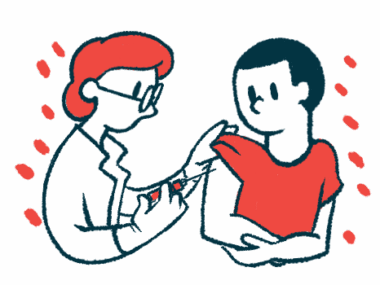Ignoring the Symptoms of Illness That Have Always Been There
Caregivers shouldn't skimp on their own doctor visits, as this columnist discovers
Written by |

“You’re bleeding!” an exasperated character usually pants out to the main character.
Then, the main character will open their jacket to reveal a dark red spot on their otherwise white clothing, gasp out a determined, “I don’t have time to bleed,” and continue fighting armed henchmen.
In some movies, the main character will discover the injury after winning the fight and dramatically fall against the wall holding the gushing wound as the other characters beg them to hold on until help arrives.
Audience members may sit at the edge of their seats, amazed that the hero got that far into the firefight with such debilitating damage. However, I, admittedly unable to suspend my disbelief during certain movies, scoff at the dramatics.
There’s no way anyone can hop fences, slide over hoods of cars, return gunshots, and get into a winning fistfight with the lead bad guy, only to discover they were fatally injured the entire time. At some point, no matter how much they attempted to ignore it, their body would have given them hints.
Even when our oldest daughter, whom we lovingly refer to as Ladybug, was officially diagnosed with hereditary angioedema (HAE) in 2021, the clues had been there all along.
When she was 4 years old, she used to complain about her hands tingling, which would often lead to them being sore a few hours later. Occasionally, she’d get in the car after school with puffy lips or swollen eyelids.
On two occasions, we rushed Ladybug crying and doubled-over in stomach pain to the pediatric emergency room, convinced she had appendicitis, only to leave confused after they diagnosed her with constipation.
Had we known what HAE was, we would’ve figured out that she had all the symptoms, and it was just a matter of finding the right doctor to let us know. Although the journey to her diagnosis was long and arduous, we were grateful for the answers.
Another diagnosis
“You have asthma,” my doctor said to me last week.
After a few years of ignoring a persistent cough that never seemed to go away, my husband finally persuaded me to see my primary care physician.
I sat on the exam table, stifling a cough, and stared at the doctor in disbelief. “That’s impossible,” I finally replied. “I would know if I had asthma.”
After an extensive conversation with him, it turns out all the signs had been there. But somehow, I’d overcompensated and, at other times, hidden or ignored all the blatant symptoms. And because I usually go to the doctor for well-checks, they can be easily missed if I’m having a good “lung day.”
My attempt to live in denial about my diagnosis was short-lived when I used my newly prescribed inhaler later that day. After the first puff, I felt like it opened a section of my lungs I’d never used.
Suddenly, I’d become the cliched action hero who didn’t know about the gunshot wound until someone pointed it out. But oddly enough, that fictional character and most caregivers have more in common than we realize.
In the movies, that wounded hero has one thing on their mind: get the person they’re with out of danger. Even if they discover an injury, they’ll throw together a makeshift bandage or use a homemade remedy just to keep going. Then, when they’re free from other distractions, they finally notice the full extent of the problem. But sometimes, that awareness can come too late.
Equally, when caregiving for loved ones with a chronic illness, we tend to concentrate so heavily on them that we don’t take the time to take inventory of ourselves. A quick cough drop, hot tea, cough medicine, or even a prednisone shot at urgent care would temporarily fix my problem. I used to think I didn’t have time to have health issues because Ladybug’s are more important.
It’s a sobering thought that such a careless decision about ignoring my health could’ve ended just as tragically as the hero’s fate in some of those movies.
We should never set out to be the hero who doesn’t have time to be hurt, sick, or bleed. It’s important that we as caregivers take a moment to stop and take the necessary steps to stay healthy, so we can continue to be there when we’re needed most.
Note: Angioedema News is strictly a news and information website about the disease. It does not provide medical advice, diagnosis, or treatment. This content is not intended to be a substitute for professional medical advice, diagnosis, or treatment. Always seek the advice of your physician or other qualified health provider with any questions you may have regarding a medical condition. Never disregard professional medical advice or delay in seeking it because of something you have read on this website. The opinions expressed in this column are not those of Angioedema News or its parent company, Bionews, and are intended to spark discussion about issues pertaining to angioedema.




Leave a comment
Fill in the required fields to post. Your email address will not be published.